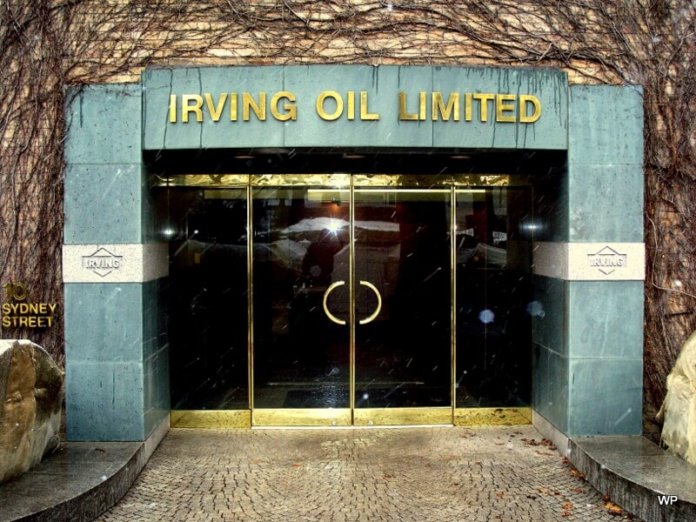
It’s not entirely uncommon to see a family owned corporation split up into separately owned divisions once it reaches the 3rd or 4th generation. In many of these cases, the reason for the split is related to business or management issues. Often, the company simply becomes too huge to manage as one entity and it makes sense to break it up into smaller pieces.
And then there is the case of the Irvings. The business that was started by K.C. Irving in New Brunswick on Canada’s East Coast in 1924 is now worth more than $8.5 Billion. In New Brunswick, one speaks of “an Irving” in the same hushed, reverent tones that were used to discuss “a Kennedy” or “a Rockefeller” in their heyday.
In his later years shortly before his death in 1992, a family friend asked K.C. Irving why he doesn’t just split the company up between his three sons, Arthur, James (J.K.) and John (Jack). K.C. replied “No, no, no, it has to stay together. It’s the only way it will work. It has to stay together.”
K.C. Irving’s theory will be put to the test as the vast Irving Empire has indeed been split up amongst the sons and their heirs. And the reasons appear to have little to do with business management and more to do with family acrimony.
Kenneth Irving is K.C.’s grandson and Arthur Irving’s son and has been one of the few Irvings to speak on the record. He told the Wall Street Journal in 2014, “There is a complexity that comes from being in a family business that is not about business complexity.”
Building the Irving Empire
Given the fact K.C. Irving would go on to make his fortune through his line of service stations and oil refineries, it is somewhat fitting that he made his first business transaction by buying one of the earliest cars in New Brunswick for $8 and selling it for $11. He was 11 years old at the time.
At the age of 25, in 1924 the young man could see the enormous impact cars were going to have in people’s everyday lives and so he opened a service station and auto-repair garage. In time, he started his own oil and gas company, Primrose Oil, which would later become Irving Oil.
In his book, Irving vs Irving: Canada’s Feuding Billionaires and the Stories They Won’t Tell, Jacques Poitras described Irving by the 1930’s as “a businessman of regional consequence with 20 service stations in New Brunswick and Nova Scotia.”
Vertical Integration – The Secret to The Irving Success
The Irving family may not have invented the concept of vertical integration but they certainly perfected it to their advantage. As their business interests expanded beyond oil & gas into forestry, shipping, trucking, and agriculture to name a few, they made sure that their companies only bought from suppliers that were other Irving-owned companies. When they later expanded into the newspaper industry, there was speculation that the reason for the purchase was to control what was being written about them. A more logical explanation is that so much of their forestry supply was going to newsprint that they wanted to own every single link in that supply chain. Today, the Irvings own every English language daily newspaper in New Brunswick and most of the English and French weeklies.
The Irving Code
K.C. was raised with a strict Scottish Presbyterian upbringing and that strong “clean living” culture was infused in everything they did. There was never alcohol at the Irving Christmas parties and new hires were not brought on until they passed what Irving employees referred to as the “lie, cheat, steal” test. A huge part of this culture was loyalty and discretion. Irving family business was to always remain inside the Irving family.
Cracks in the Façade
By all accounts, relations between the three Irving sons were harmonious through most of their adult working life. However, when the third generation entered the picture, divisions began to appear. In that same WSJ interview, Kenneth Irving admitted that balancing “cousin to cousin, uncle to uncle” relationships in a business environment was “complex.”
Those relationships frayed to the point where in 2007, the announcement came that the Irving company would be split up with each of the three sons controlling certain pieces of it. A clear sign of the underlying tensions came around that same time when only one of the three brothers, J.K. showed up at the Irving family induction into the Canadian Business Hall of Fame.
Lasting Bitterness
It soon became apparent that the years of this high-pressure business environment took its toll on family relationships in a real in lasting way. According to a report in the Globe and Mail, when Jack was dying in 2010, J.K went to see his brother in the hospital and was refused. At Jack’s wake, J.K. had to stand in line with the rest of the public in order to pay his respects to his brother.
Equally tragic is the fractured relationship between Arthur and Kenneth Irving. When Arthur retired in 2000, Kenneth stepped in to take over for his father. In 2010 it was announced that Kenneth was leaving the Irving Company because of “personal reasons.” Little was said at the time but Kenneth has recently discussed his battle with mental health issues. Failing to understand why Kenneth couldn’t just dust himself off and pick himself up, Arthur broke off all contact with his son.
Today, in an almost Shakespearean irony, the Irving family stands as both an aspirational story of what can become of a family business and a cautionary tale of what that success can do to the family unit.









